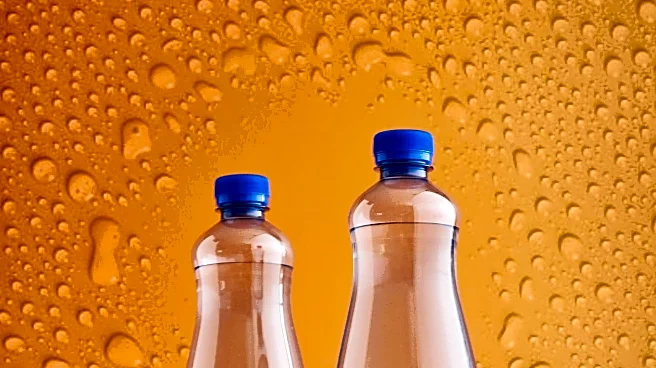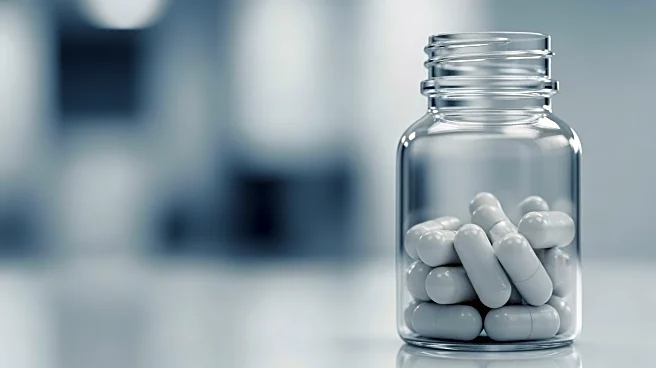What's Happening?
Experts have warned against drinking bottled water past its best before date due to the potential degradation of the plastic bottle, which can lead to the release of harmful microplastics. These microplastics have been linked to health issues such as bowel cancer, brain damage, and infertility. While bottled water is generally safe to drink after its expiration date, the risk of ingesting microplastics increases as the plastic degrades over time. Studies have found microplastics in human tissues, raising concerns about their impact on health.
Why It's Important?
The presence of microplastics in bottled water and their potential health risks underscore the need for greater awareness and regulation of plastic use in consumer products. As microplastics have been found in various human tissues, their long-term health effects are a growing concern. This issue highlights the importance of sustainable practices and alternatives to single-use plastics, which can reduce exposure to harmful substances and protect public health.
What's Next?
Increased awareness of the health risks associated with microplastics may lead to more stringent regulations on plastic use and the promotion of alternatives such as glass or metal containers. Public health campaigns may focus on educating consumers about the risks of microplastics and encouraging sustainable practices. Research into the health effects of microplastics is likely to continue, potentially influencing policy decisions and consumer behavior.
Beyond the Headlines
The issue of microplastics in bottled water reflects broader environmental and health challenges associated with plastic pollution. As awareness grows, there may be a cultural shift towards more sustainable consumption practices and increased demand for eco-friendly products. This could drive innovation in packaging and materials, contributing to a reduction in plastic waste and its impact on ecosystems.









